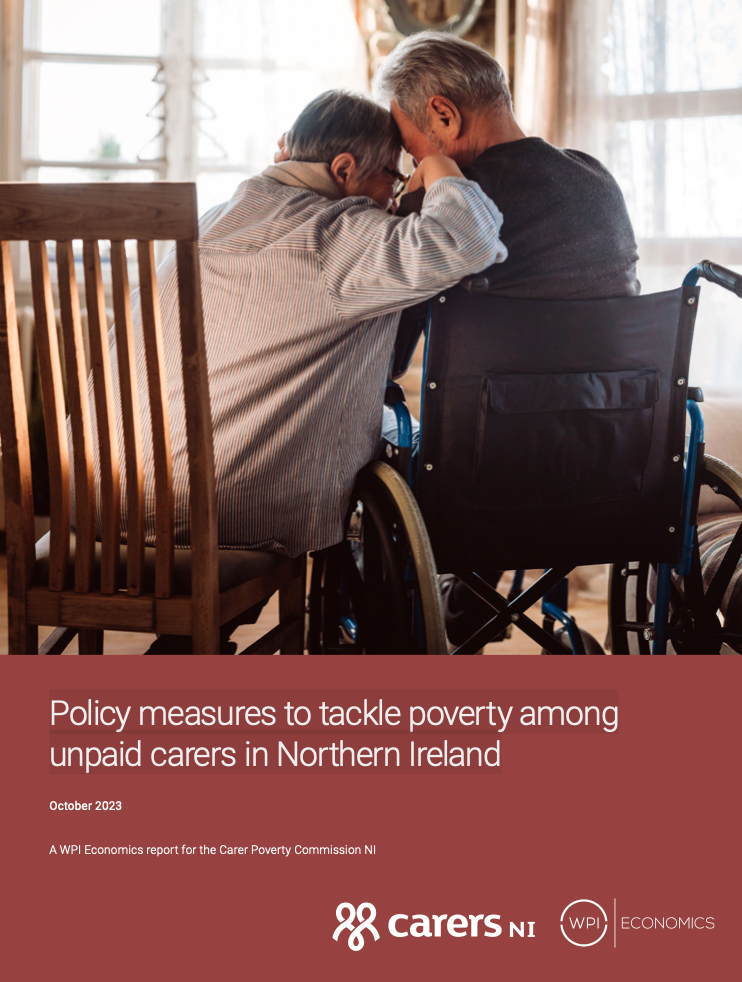
We’ve worked with Carers NI’s to produce the final report of the Carer Poverty Commission, “Policy measures to tackle poverty among unpaid carers in Northern Ireland”. This report brings together quantitative analysis of household survey data and qualitative research with unpaid carers outlining the drivers of poverty among unpaid carers and policy modelling of solutions to tackle this poverty.
Headline findings include that:
- 28.3% of unpaid carers in Northern Ireland are living in poverty – significantly more than Northern Ireland’s non-carer population (17.4%) and carers in the rest of the UK (23.6%);
- Being unable to combine paid work with unpaid care is the single strongest predictor of carer poverty – more than half (55%) of unpaid carers who are out of work live in poverty;
- Tenure type is another strong predictor of carer poverty, with more than a third (37%) of unpaid carers who are private renters living in poverty, rising to 56% among social renters;
- Almost half (46%) of unpaid carers in receipt of Carer’s Allowance in Northern Ireland are living in poverty, illustrating that the benefit does not provide an adequate level of support in its current form.
The report modelled the impact on the poverty rate of three different benefits changes. We found that:
- Carer’s Allowance Supplement of £10.38/week could decrease the poverty rate in carers who receive Carer’s Allowance by 3.8% points (from 46% to 42.3%).
- Carer Essential Payment of £25/week could decrease the poverty rate in carers who receive Carer’s Allowance by 6.6% points (from 46% to 39.5%).
- Carer’s Allowance uplift of £43.25/week could decrease the poverty rate in carers who receive Carer’s Allowance by 8% points (from 46% to 38%).
Alongside these benefit changes, the report also recommends a series of wider measures that can be implemented by government, employers and wider stakeholders that together could make a meaningful impact on the poverty levels of unpaid carers in Northern Ireland.
Read the full report here.
